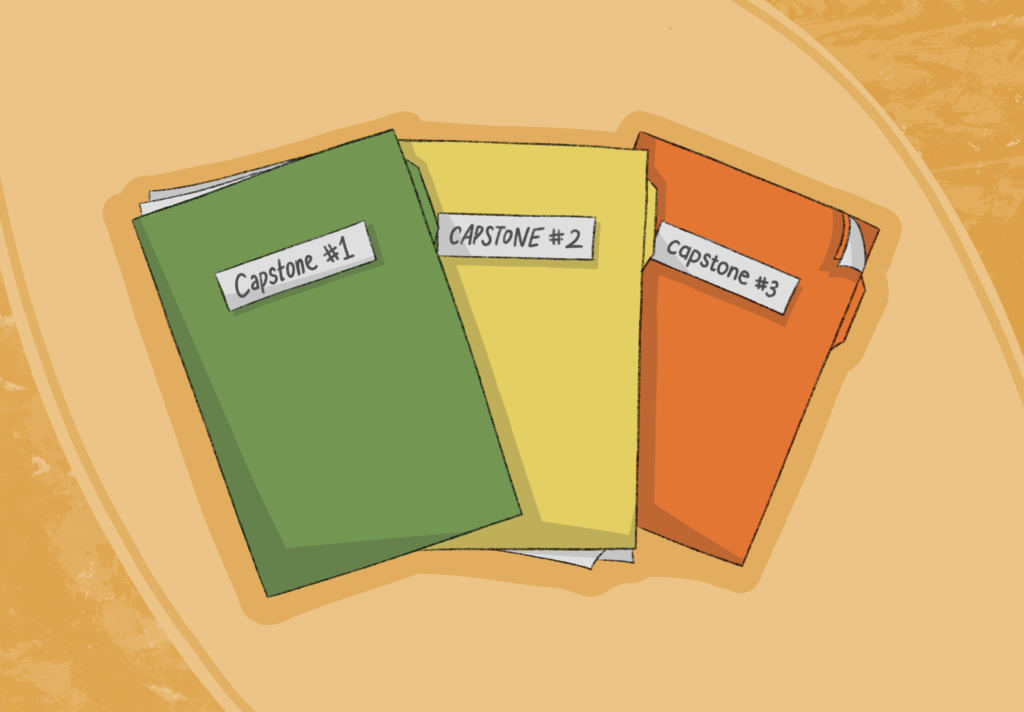
Choate students’ use of TikTok has risen dramatically since the start of the school year. Graphic by Chandler Littleford/The Choate News
The use of TikTok, a video sharing app created by a Beijing-based company, has become widespread on the Choate campus, particularly with the underclassmen. Like other social media, TikTok is entertaining, but it can become quite addicting. While some Choate students fully enjoy using the app, others have found it harmful to student life.
TikTok became extremely popular in October of 2018, but it was actually released a year before. Some Choate students, such as Alex Skrypek ’23, were introduced to the app from ads. Others saw it on other social media platforms and were intrigued.
TikTok is a video-creation app, and it is similar to Instagram in that people can follow other users, post comments, and like posts. Most of these clips tend to be amusing, and this is what draws many students in. “With so much content on the app, it is an endless source of these funny videos,” said Wylee Fichera ’21. “Users can also make their own videos. Since they tend to be ridiculous as opposed to serious, this is fun as well.”
Fichera, along with Skrypek, views TikTok as similar to Vine, a video sharing app which shut down in 2017 on which users could view and create six-second video clips. The app can also be interactive, just like other social media. Users can meet people on TikTok, and see their ideas.
Despite the entertainment that TikTok can provide, there are obvious drawbacks to the app. Skrypek has found that he wastes a large portion of his time on the app. “It’s pretty bad. A lot of people are addicted to it. I put a screen time limit [on TikTok], which is the first app I’ve ever used one on.” Lots of use can impinge on a student’s academic performance and overall wellbeing. Scrolling through social media distracts students, and it keeps them from doing other things like studying and homework.
For other students like Fichera, the app has had negative effects on their body image: “You see a lot of people on the app that don’t look the same as you, and you get a little self-conscious.” Serena Levin ’20 has very strong feelings regarding this issue. “People have shown me some TikToks, and the trend is that girls only get likes when they objectify themselves, which really upsets me and makes me question the platform itself.” She continued, “I don’t subscribe to the app because of that reason. I don’t want to be using an app that is fueled by the objectification of young girls.”
As with any social media, usage of the app is difficult to keep under control. Levin explained, “I don’t personally use the app because I have seen how addictive it has become for some of my friends.” With many using the app for hours a day, it makes sense that those who have not downloaded it would be skeptical of trying it. In fact, avoiding TikTok could be a better option, especially for those with time management issues. Unfortunately, the app has become so popular that many people download it despite its negative effects on their productivity. Levin and her fellow Nichols prefects made a rule banning TikTok in response to the amount it was used by Nichols residents. Although the rule was a joke and not really enforced, the message is still clear: TikTok is constantly being used by students — even when they should be getting work done or going to bed.
Another concern with TikTok is data privacy. Just like other social media apps, including Facebook, users take the risk of their data being stolen and distributed when they download the app. However, social media tends to be very engaging, which distracts users from this problem. “People are mindlessly using it for entertainment but not thinking about the consequences,” Levin said.
With users constantly uploading new content to TikTok, it seems that the app will be around for some time. “I think it’ll be like Vine. It’ll keep on being used until it gets shut down,” said Skrypek about the app’s future. He continued, “Facebook, another popular social media platform, has been around for over a decade and remains relevant. I think TikTok will likely stay this way as well, especially in teenage age groups where the app is most popular,” said Skrypek.
Will users ever be able to shake TikTok’s particular brand of social-media time-wasting? Who knows. “I honestly think TikTiok is stupid,” said Fichera. “But it’s still fun.”




